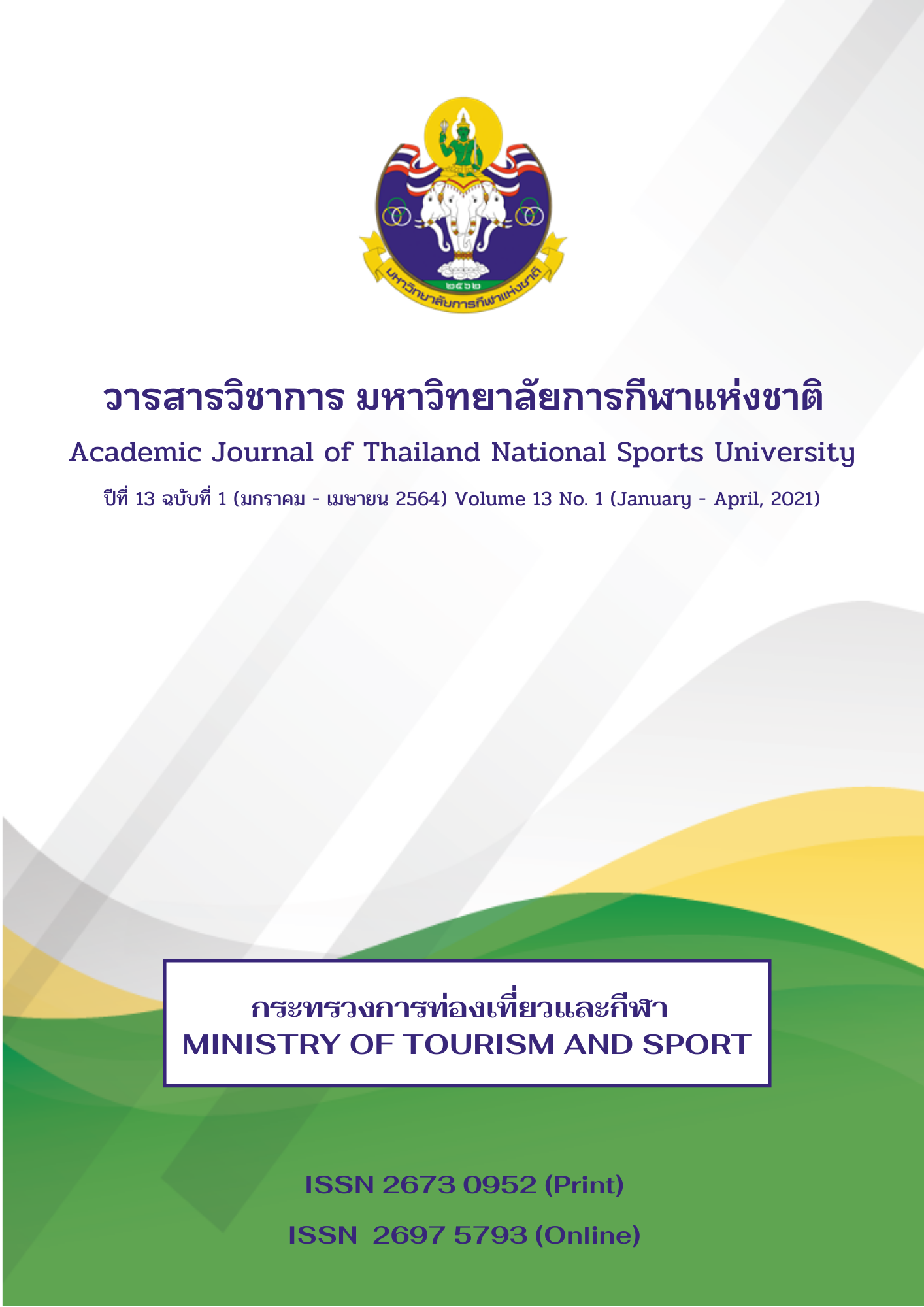MOOC MODEL: INNOVATIVE APPROACH OF TEACHING IN THAILAND 4.0
Main Article Content
Abstract
Massive Online Open Course or MOOC model of teaching and learning is an innovation in education which combines approach of teaching and the capability of information and communication technology with the internet. The MOOC model is applied to improve instructional process in the context of Thailand 4.0 and to solve problems, to develop and to enhance the efficiency of instruction. The MOOC model was designed so that courses are accessible online to everyone, regardless of the person’s age or job. Courses are available on an open platform that support massive learners. Learners can continuously communicate, exchange and search for knowledge together with other learners, both synchronously and asynchronously, anytime and anywhere they want and find suitable within the context. While learning through instructional media provided in MOOC courses, learners do not only read, watch or listen to content, but they are also prompted with quizzes included in the content. As a result, the learners must concentrate and be enthusiastic while learning. When learners submit their answers to the quizzes, the system will process them and promptly show the score as well as giving suggestions for incorrect answers so that learners are aware of their learning progress and weaknesses at all times. Furthermore, instructors can track learners’ learning data more easily and analyze their evaluations. The instructor’s role is to encourage, advise, support and carefully track the learner’s learning results. Therefore, it is considered that the MOOC model expands education opportunity and remedy educational inequality as the model removes teaching and learning limitations, allowing learners to learn at their full potential and develop skills needed in education management in 21st century.
Article Details
The published article is a copyright of the Academic Journal of Thailand National Sports University. The passage appeared in each article in this academic journal is a perspective of each author which is not related to the journal. Each author is required to be responsible for all components of his/her own article. If there are any mistakes, each author must be responsible for those mistakes on his/her own.
References
Anders, A. (2015). Theories and applications of massive online open courses (MOOCs): The case for hybrid design. The International Review of Research In Open & Distributed Learning, 16(6), 39-61.
Bandalaria, M.P. (2015). MODeLing: Reinventing MOOC through a learner-centred approach. Studies and Practices in Open and Distance Education. Open University of Hong Kong.
Dubosson, M., & Emad, S. (2015). The forum community, the connectivist element of an xMOOC. Universal Journal of Educational Research, 3(10), 680-690.
Jarumon Nookhong and Namon Jeerungsuwan. (2015). The design of blended training model with the MOOC teaching style for developing information, media and technology skills within undergraduate students. Technical Education Journal King Mongkut’s University of Technology North Bangkok, 6(1), 105-113.
Jintavee Khlaisang. (2013). MOOCs pedagogy: from OCW, OER, to MOOCs as learning tools for digital learners. In Proceeding National e-Learning Conference 2013. (pp. 276-285). Nonthaburi: Thailand Cyber University.
Littlejohn, A., Hood, N., Milligan, C., & Mustain, P. (2016). Learning in MOOCs: Motivations and self-regulated learning in MOOCs. Internet and Higher Education, 29, 40-48.
Namon Jeerungsuwan. (2013). Principles of design and evaluation (3th ed). Bangkok, Thailand: King Mongkut´s University of Technology North Bangkok.
Natapattara Tinnawas. (2015). The study of massive open online course model for Thai higher education (Master’s thesis), Silpakorn University, Faculty of Education, Department of Educational Technology.
Office of the Education Council. (2017). The National Education Plan B.E. 2560-2579 (2017-2036). Bangkok: Prigwhan Graphic Public Company Limited.
Office of the National Economic and Social Development Board. (2016). The 12th National Economic and Social Development Plan B.E. 2555-2559 (2012-2016). Retrieved from https://www.nesdb.go.th/ewt_dl_link.php?nid=6422
Paitoon Sinlarat. (2016). Education 4.0 more than education. Bangkok: Chulalongkorn University Press.
Phuchit Satitpong. (2017). Development of a geography ubiquitous instructional system for lower secondary education in lower Northeastern Thailand (Doctoral dissertation). Burapha University,
Praweenya Suwannatthachote and Samoekan Sophonhiranrak. (2017). MOOC standards and practices that are internationally recognized. Bangkok: Thailand Cyber University, Office of the Higher Education Commission.
Royal Thai Government. (2019). The Prime Minister General Prayut Chan-o-cha delivered the government’s policy statement in parliament. Retrieved from https://www.thaigov.go.th/news/contents/details/21750
Sumalee Chaijaroen. (2011). Educational technology: Principles theories to practices (2th ed). Khon Kaen: Klungnanawittaya.
Suratpong Sikkhabandit. (2018). Policy of Thailand 4.0: Opportunity threat and beneficience of Thailand in ASEAN community. Retrieved from https://www.parliament.go.th/ewtadmin/ewt/parliament_parcy/download/article/article_20180302145352.pdf
Tissana Khammani. (2016). Pedagogy of education: Knowledge for effective learning process management (20th ed.). Bangkok: Chulalongkorn University Press.
Vipa Jaroenpontaruk. (2015). MOOC: Free open education in digital era. STOU Education Journal, 8(2), 1-15.


